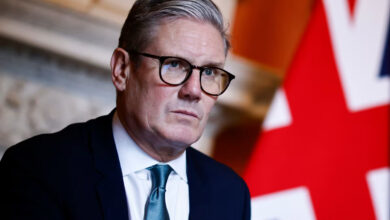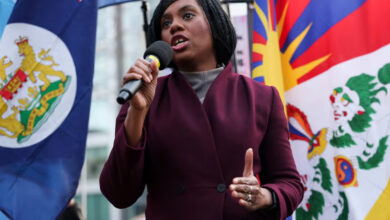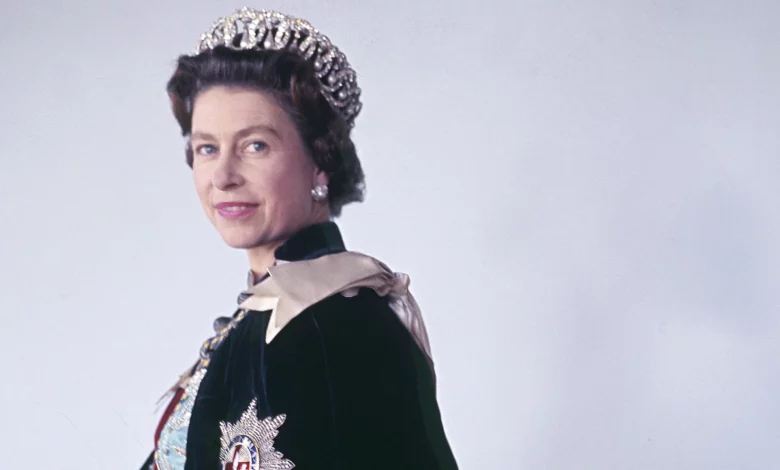
The late monarch died peacefully at the age of 96 at her Balmoral bolt hole on September 8 last year, months after her historic Platinum Jubilee celebrations marking 70 years on the British throne.
Charles is currently in Balmoral – the beloved royal property in Aberdeenshire where his mother retreated annually for a summer break. There had been questions over whether the King would continue the tradition, but that speculation was put to rest with his arrival a few weeks ago.
Since then, several family members have been spotted coming and going from the Scottish residence. But a royal source has told CNN they will have all departed by Friday. And there won’t be any public events there.
Charles has opted to handle the deeply personal day by staying out of the public eye, apart from a brief appearance after attending church – a similar approach to his mother who often spent her own Accession Day in private at Sandringham House, where her father King George VI died in his sleep in 1952.
However, the King has recorded a short audio message paying tribute to his mother’s “devoted service.”
“In marking the first anniversary of Her Late Majesty’s death and my accession, we recall with great affection her long life, devoted service and all she meant to so many of us,” the King said.
“I am deeply grateful, too, for the love and support that has been shown to my wife and myself during this year as we do our utmost to be of service to you all.”
Alongside the audio message, Charles released a favorite photograph of his mother taken by Cecil Beaton in 1968, which has only previously been seen in an exhibition. It shows the Queen, then aged 42, dressed in her Garter robes standing sideways and smiling. She is wearing the Grand Duchess Vladimir’s Tiara, which is made of 15 interlaced diamond circles.
Meanwhile, the Prince and Princess of Wales will observe the day by attending a small private service commemorating the late matriarch’s life in Wales. He’s expected to speak on behalf of the family.
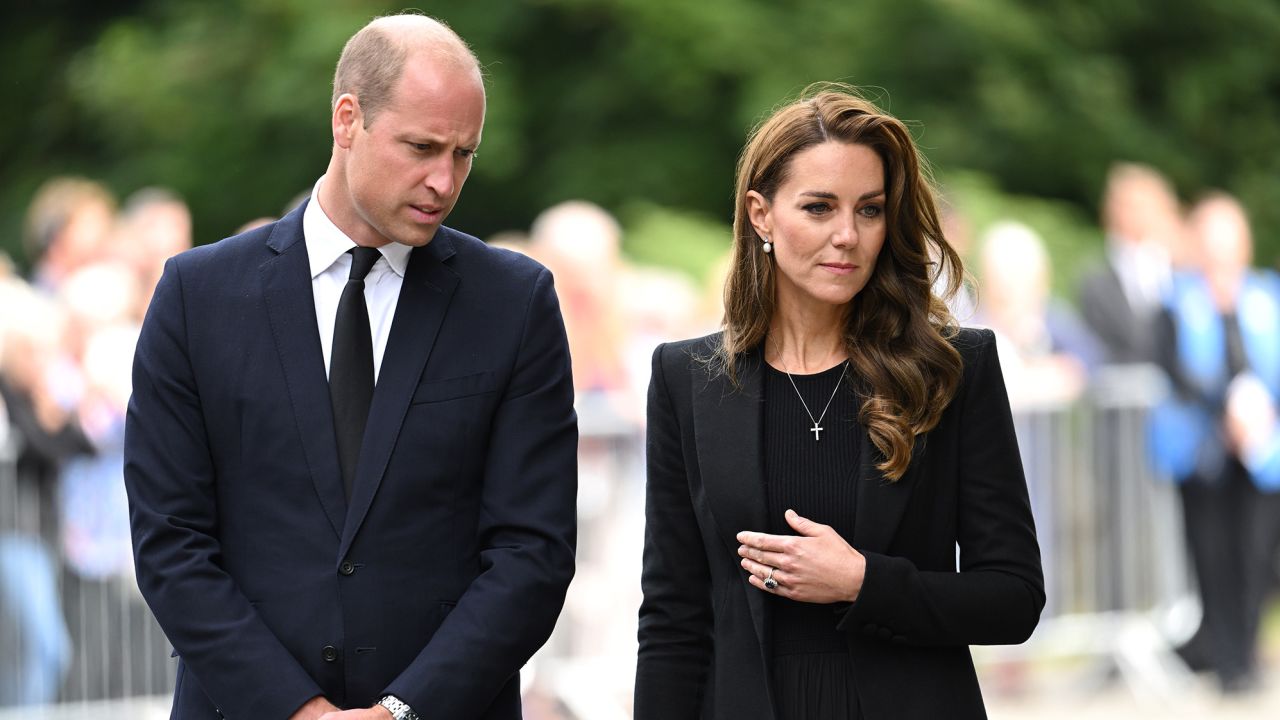
The couple will visit St. Davids Cathedral in Britain’s smallest city of St. Davids in Pembrokeshire. St. Davids has been a site of pilgrimage and worship for more than 1,400 years since David, the patron saint of Wales, settled there in the sixth century with his monastic community.
The pair will then meet people from the local community – some of whom previously met Queen Elizabeth II during various visits to the city.
The Duke of Sussex also paid tribute to his grandmother, praising her sense of duty while speaking at a charity event in London on the eve of the anniversary.
“As you know, I was unable to attend the awards last year as my grandmother passed away,” Prince Harry said Thursday at the awards ceremony for UK charity WellChild, which helps children with serious health problems.
“As you also probably know, she would have been the first person to insist that I still come to be with you all instead of going to her. And that’s precisely why I know, exactly one year on, that she is looking down on all of us tonight, happy we are together, continuing to spotlight such an incredible community,” he said.
The duke returned to the United Kingdom for a fleeting visit for the organization which he has been patron of for more than a decade. The fifth in line to the throne is not expected to see his immediate family during the flying visit and will soon be off again as he’s expected in Germany for the opening ceremony of his Invictus Games in Dusseldorf on Saturday.
Meghan, Duchess of Sussex was not with her husband in the British capital, but she is expected to join him in Germany shortly after the games begin.
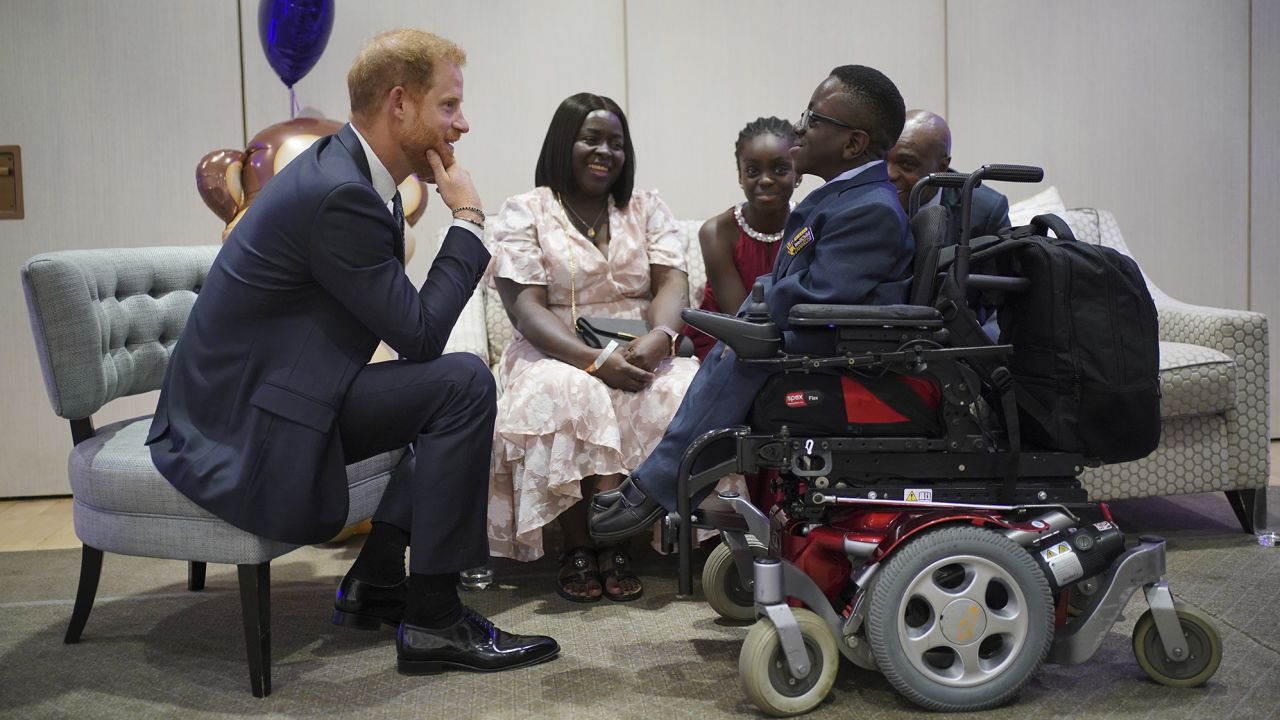
The anniversary of the late Queen’s death brings the transition period to an end and begins the Carolean era in earnest. For several royal experts, the King has used the past 12 months to blend the two reigns and strengthen the monarchy.
“The hallmark of his first year, perhaps to the surprise of some, is stability and continuity,” Vernon Bogdanor, leading UK constitutional expert and historian, told CNN.
“Britain is now a multinational state with devolution in four parts and he visited each part of the UK after his accession, and I think he’s very sensitive and conscious of that,” explained the research professor at the Centre for British Politics and Government at King’s College London. “And also, very sensitive and conscious of the fact that Britain is a multicultural society.”
He continued that Charles is a “modern King” and “arguably more sensitive to these newer aspects than the late Queen.”
Charles’s first year on the throne couldn’t have gone much better, according to Craig Prescott, a constitutional law expert and lecturer at Royal Holloway, University of London.
“For many people, there was just a concern about having the new monarch because it was a new experience for practically the whole country,” Prescott said. “The surprise is that not that much radical has happened.”
He continued: “There’s been a lot of discussion for the past 30 years about what sort of King Charles would be and actually he’s followed the template of his mother quite closely. This year has been really one of continuity rather than change.”
That would appear to be reflected in recent polling in the UK which found the majority of people surveyed felt the King was doing a “good job” in the year since his accession. However, the data reinforced a generational split over whether Britain should continue to have a monarchy, with support falling with the age of respondents.
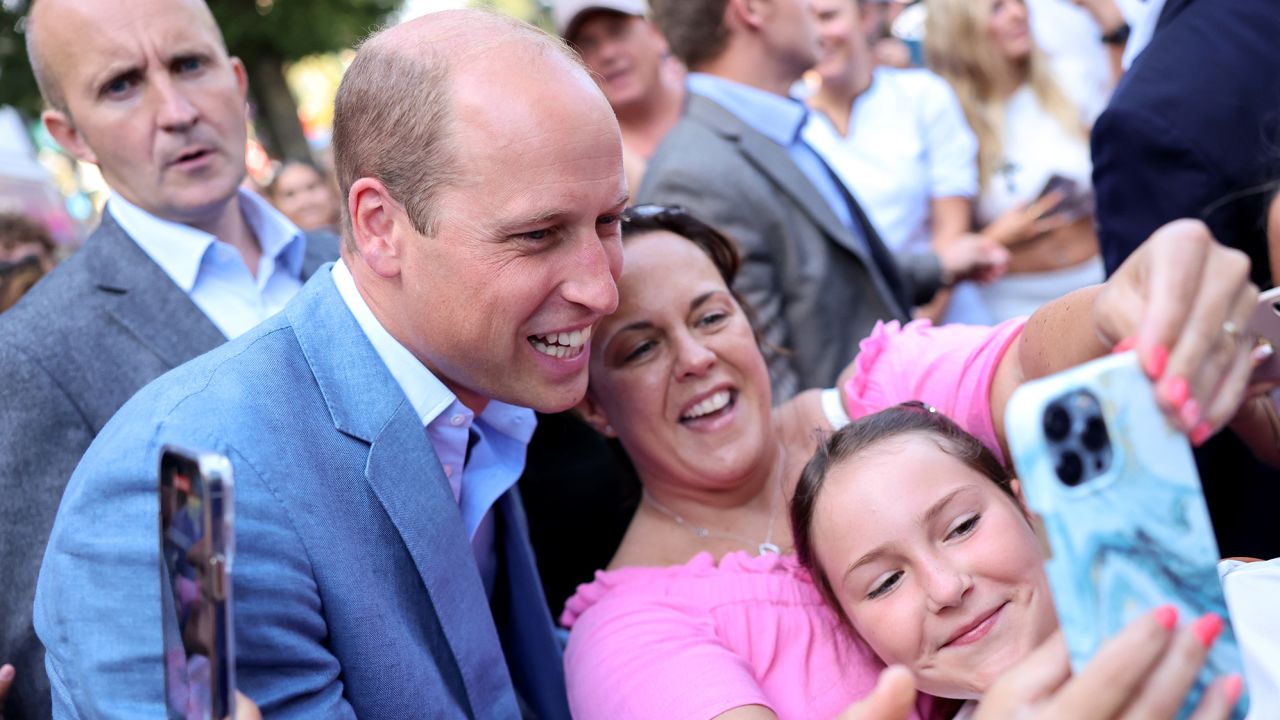
Prescott said the King’s approach since taking over was a bit sharper and that he had been addressing some public apathy by making delicate adjustments while he continued to find the scope of what he could do in his new role.
He pointed to how the monarch combined the traditional coronation service while molding it to modern Britain through some of his contemporary musical choices and the invited congregation as examples of how he’s making small changes. He added that there have also “been quite a few engagements with elements of diversity and inclusion.”
But bolstering support for the ancient institution in a modern Britain, particularly among younger generations, will be a challenge the King will continue to face, according to Bogdanor.
“The monarchy can’t remain as it were and has to move on with the times. If it moves on too far, it loses support. If it doesn’t move on at all, it loses support. The trick is to get the balance right,” Bogdanor said.
“This is a task for Charles. He’s also fortunate in having the Prince of Wales which will help in the modernizing process. But it’s a very continuous flow of modernization which is on the whole hidden from the public.”

